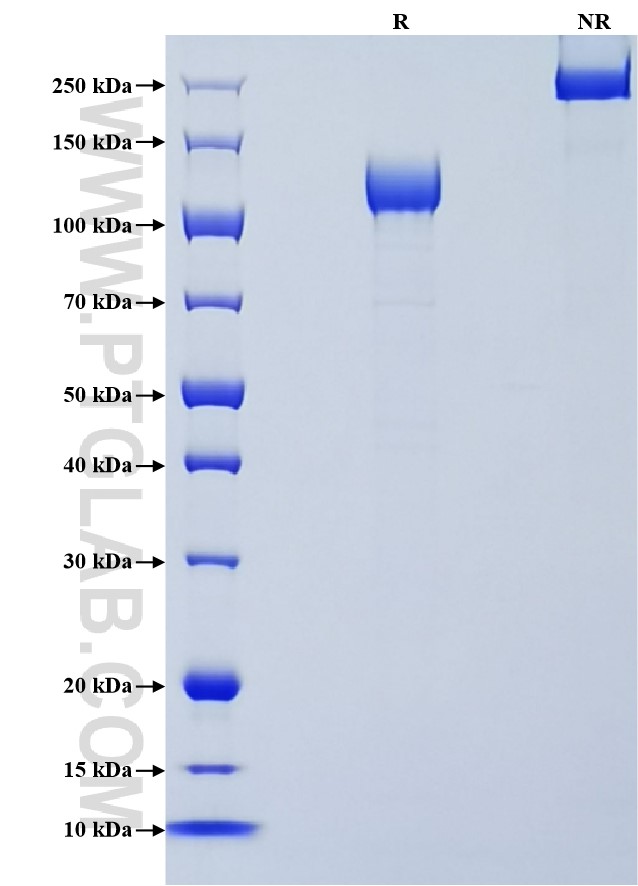Recombinant Human ALK protein (rFc Tag)
种属
Human
纯度
>90 %, SDS-PAGE
标签
rFc Tag
生物活性
未测试
验证数据展示
产品信息
| 纯度 | >90 %, SDS-PAGE |
| 内毒素 | <0.1 EU/μg protein, LAL method |
| 生物活性 |
Not tested |
| 来源 | HEK293-derived Human ALK protein Val19-Ser1038 (Accession# Q9UM73) with a rabbit IgG Fc tag at the C-terminus. |
| 基因ID | 238 |
| 蛋白编号 | Q9UM73 |
| 预测分子量 | 136.6 kDa |
| SDS-PAGE | 125-135 kDa, reducing (R) conditions |
| 组分 | Lyophilized from 0.22 μm filtered solution in PBS, pH 7.4. Normally 5% trehalose and 5% mannitol are added as protectants before lyophilization. |
| 复溶 | Briefly centrifuge the tube before opening. Reconstitute at 0.1-0.5 mg/mL in sterile water. |
| 储存条件 |
It is recommended that the protein be aliquoted for optimal storage. Avoid repeated freeze-thaw cycles.
|
| 运输条件 | The product is shipped at ambient temperature. Upon receipt, store it immediately at the recommended temperature. |
背景信息
ALK, also named as CD246, is a receptor tyrosine kinase (RTK) that belongs to the protein kinase superfamily. ALK is usually found in the nervous system and appears to play an important role in the normal development and function of the nervous system. ALK was originally identified as part of the NPM (Nucleophosmin)-ALK oncogenic fusion protein, resulting from the (2;5)(p23;q35) translocation that is frequently associated with anaplastic large-cell lymphoma (ALCL). The EML4 (echinoderm microtubule-associated protein-like 4)-ALK fusion protein have been described in non-small-cell lung cancer (NSCLC), this transforming fusion kinase is a promising candidate for a therapeutic target as well as for a diagnostic molecular marker in NSCLC. The expression of anaplastic lymphoma kinase (ALK, CD246) has been documented in most uIMTs.
参考文献:
1. Soda M.et al. (2007). Nature. 448(7153):561-6. 2. Parra-Herran C. (2021). Int J Gynecol Pathol. 40(1):28-31.


